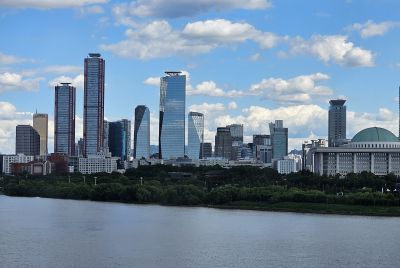Why Did Wells Fargo Ban Employees From Travelling to China?

Wells Fargo, one of the largest American financial institutions globally, has advised its employees against travelling to China.
The directive follows reports that a Wells Fargo banker has been barred from leaving the country after attending an industry event in China.
A statement by Wells Fargo said, 'It is closely tracking this situation and working through the appropriate channels so our employee can return to the United States as soon as possible.'
'Abide by Chinese Law in China'
According to a report from the Wall Street Journal, Chinese authorities have barred the exit of Chenyue Mao, a Shanghai-born and Atlanta-based managing director at Wells Fargo.
While details about her exit ban haven't been made public yet, Chinese authorities have been adamant that people must abide by their local laws.
'For anyone in China, whether Chinese or foreign, they need to abide by Chinese law,' a Chinese Foreign Ministry spokesman said.
Banker is Expert in Factoring and Trade Receivables Financing
Chenyue Mao is an experienced specialist in international factoring, which involves exporters selling unpaid invoices to third parties that later collect payments from importers abroad.
She has extensive experience working with Chinese companies and industry groups on trade financing and has travelled to China for related business purposes.
Currently, Mao serves as chairwoman of FCI (formerly Factors Chain International), a global network specialising in factoring and trade receivables financing. She was elected chairwoman in late June at FCI's annual meeting in Rio de Janeiro.
'International trade thrives when reliable partners stand behind every transaction. As Chair, I will leverage FCI's unrivalled network to expand access to receivables finance, advocate for progressive regulation, and drive the next wave of innovation in open-account solutions. Together we will go far, amplifying member growth, elevating industry standards and empowering businesses in every market we touch,' Mao said in a LinkedIn post by FCI regarding her appointment.
Exit Bans Are No Longer New
It is worth noting that exit bans imposed by Chinese authorities on people travelling for business, and even government officials, are not a new occurrence for many, given multiple instances that have happened in recent years.
Earlier this year, a naturalised American, working for the US Patent and Trademark Office, was placed under an exit ban after failing to disclose their government role on a visa application.
In 2023, two separate exit bans occurred – a Nomura executive was prevented from exiting mainland China for several months, while a Hong Kong-based Kroll executive also faced exit restrictions that lasted over a year.
A Potential Chinese Probe Brewing?
Industry observers often note that exit bans by Chinese authorities are a clear indication of impending probes against individuals who deal with a wide array of businesses relevant to the Chinese market.
Previously, Chinese authorities detained Mintz Group staff in Beijing for two years, part of a broader crackdown on consultancy firms that also impacted Bain & Company. A Singaporean Mintz executive was then barred from exiting China. The firm was fined £ 1.1 million ($1.5 million) in July 2024 for carrying out unauthorised statistical work before releasing the staff in March this year.
Moreover, AstraZeneca's China president, Leon Wang, was detained and placed under investigation in 2024, though few details about the nature of the investigation were disclosed.
Crackdown on Corruption
Probes by the Chinese government into foreign entities operating in the country are rampant, especially when they involve allegations of bribery and corruption.
Former executives for GroupM in China are facing potential prison sentences related to a bribery scandal in October 2023 and alleged 'black box' media rebates between media owners, agencies and intermediary brokers in the market.
While no details regarding Mao's exit ban have been publicly disclosed, China increasingly uses exit bans to aid investigations, intimidate critics, or gain leverage in foreign disputes.
© Copyright IBTimes 2025. All rights reserved.





















